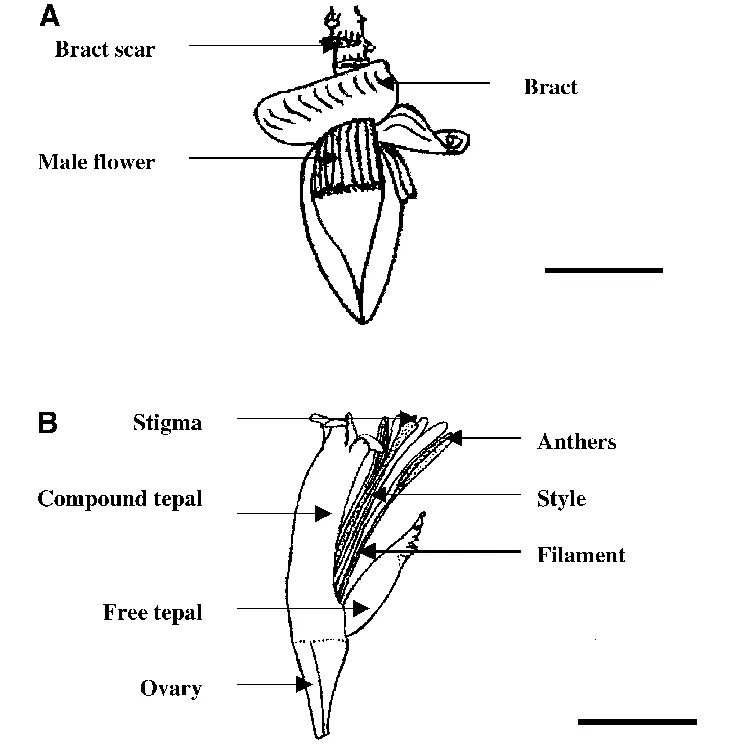Unveiling the Mystery of “Banana” in Arabic: Meaning, Pronunciation, and Cultural Significance
Have you ever wondered what the word for “banana” is in Arabic? Or maybe you’re interested in the history and origins of the term in the Arabic language. Regardless of your reasons for seeking out this information, you’ve come to the right place.

In this article, we’ll delve into the topic of “what’s banana in Arabic,” exploring the word’s meaning, pronunciation, and cultural significance. Whether you’re a language enthusiast, a traveler, or simply curious about the Arabic language and culture, you’re sure to find something of interest here.
So, without further ado, let’s dive into the world of bananas in Arabic!
What is the word for “banana” in Arabic?

In Arabic, the word for banana is “mawz”. This delightful fruit has been a staple of Middle Eastern cuisine for centuries, and its sweet flavor and nutritional benefits make it a popular choice among health-conscious individuals.
The Arabic language is rich with unique words that reflect the cultural nuances of the region. And while learning a new language can be challenging, mastering the vocabulary surrounding bananas in Arabic is sure to impress both locals and tourists alike.
Whether you’re looking to expand your culinary horizons or simply curious about foreign languages, understanding the word for banana in Arabic is an excellent starting point. So why not grab a mawz and start exploring all that this fascinating language has to offer? Who knows – you might just discover your new favorite fruit!
The history and origins of the banana in the Arabic language.
The history and origins of bananas in the Arabic language are fascinating and deeply rooted in cultural traditions. Bananas, or “mawz” in Arabic, have been a staple food source for centuries, with evidence dating back to ancient civilizations such as the Assyrians and Babylonians.
The word “mawz” itself has an interesting origin. It is believed to have come from the Persian word “mauz,” meaning banana or plantain. This then spread to other languages in the region, including Arabic.
Bananas were not native to Arabia but were introduced by traders from India and Southeast Asia during ancient times. They quickly became popular due to their sweet taste, portability, and nutritional value.
In traditional Arabic culture, bananas were often given as gifts during special occasions such as weddings or births. They also hold significant spiritual value for Muslims during Ramadan when they break their fast with a date and a banana.
Today, bananas continue to be widely consumed in Arab countries both fresh and dried as snacks or incorporated into various dishes ranging from sweet desserts like banoffee pie to savory dishes like chicken curry with bananas.
Overall, the history of bananas in the Arabic language showcases how food can transcend cultures and become an integral part of daily life while still maintaining its unique origins and significance.
The importance and uses of bananas in Arabic culture.
Bananas have played an important role in Arabic culture for centuries. They are not just a tasty and nutritious fruit but also have several cultural and social significance.

In Arabic culture, bananas are often used as a symbol of hospitality. It is considered polite to offer guests a bunch of bananas when they visit your home or attend any social gathering. The gesture signifies warmth, generosity, and respect towards the guests.
Apart from their symbolic importance, bananas also have several practical uses in Arabic cuisine. They are often used to make traditional desserts like banana halwa or banana pudding. Bananas are also added to savory dishes like biryani and kebabs to add a natural sweetness that balances out the spices.
In addition to their culinary uses, bananas also have medicinal properties that make them highly valued in traditional Arab medicine. Bananas are believed to be effective in treating digestive issues like bloating and constipation due to their high fiber content. They are also rich in vitamins and minerals that help boost immunity, improve heart health, and regulate blood sugar levels.
Overall, bananas hold great importance in Arabic culture for both their cultural significance as well as practical uses in cooking and medicine. Their versatility makes them an essential ingredient that is used widely across the region’s cuisine while serving as a symbol of hospitality towards guests.
How do you correctly pronounce banana in Arabic?
The Arabic language has its own unique pronunciation for the word “banana.” To correctly pronounce this exotic fruit in Arabic, one must first understand the subtle nuances of the language.
The correct way to pronounce “banana” in Arabic is “mawz.” This may seem simple enough, but there are several important factors to consider when attempting to master this pronunciation. For example, the emphasis should be placed on the second syllable, rather than the first or third.

Additionally, it is important to note that different dialects of Arabic may have their own variations on how to pronounce “banana.” In some regions, for instance, you may hear it pronounced as “banadagh.”
To truly master this skill and impress your Arabic-speaking friends with your linguistic prowess, it is crucial to immerse yourself in the language and practice regularly. Listen closely to native speakers and mimic their pronunciation until you feel comfortable with your own rendition.
In conclusion, while pronouncing “banana” in Arabic may seem like a minor detail in everyday conversation, paying attention to these subtleties can help deepen your understanding and appreciation of this rich and complex language. So go forth and confidently order a mawz smoothie at your local Middle Eastern cafe!
Check out our other articles to find out even more about banana.
If you’re interested in learning more about bananas, it’s important to know the Arabic word for it and understand how to correctly pronounce it. We hope this article gave you a better understanding of the history and origin of banana in Arabic language as well as its importance and uses within Arabic culture. Check out our other articles to find out even more about banana!










